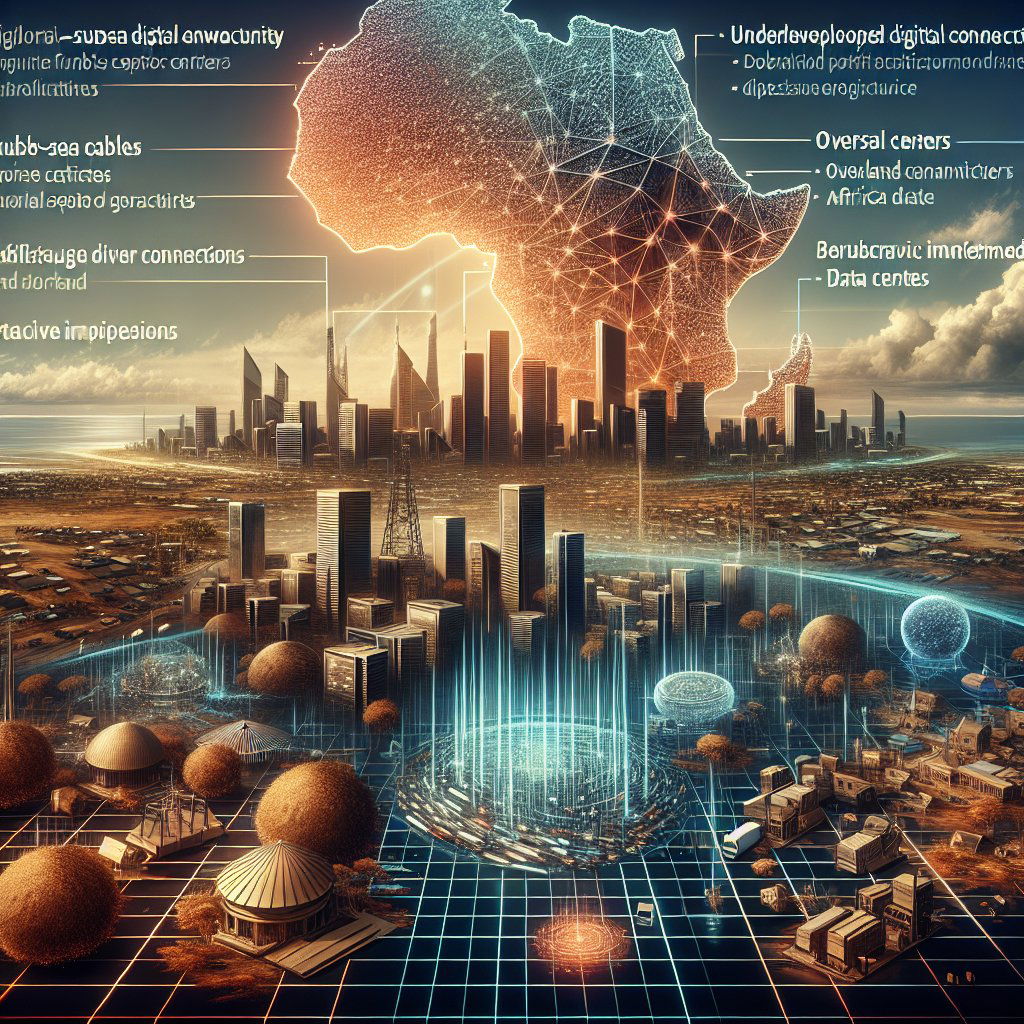Image created by AI
Africa's Digital Potential: Will it Miss the AI Revolution?
Africa stands at the cusp of a technological transformation that could redefine its economic landscape. The potential benefits of artificial intelligence (AI) are enormous, promising to spur innovation and productivity across the continent. Yet, a critical barrier looms large: Africa's inadequate digital infrastructure could inadvertently lead it to miss out on the AI revolution, repeating the connectivity conundrums that have long plagued its development narrative.
An alarming report comparing the continent's connectivity landscape to that of Brazil from over two decades ago paints a vivid picture of stagnation – in over twenty years, Africa still lags behind in terms of international bandwidth allocation. AI's insatiable demand for data and computing power makes this deficit more concerning than ever. It is a call to action that cannot be ignored.
Drawing inspiration from its own history, Africa can apply lessons learned from the mobile telecommunications leap of the early 2000s. When governments liberalized the sector and invited private companies to compete, the results were transformative. Nigeria exemplifies this success, expanding from a paltry 450,000 phone lines in 1999 to around 500 million mobile subscriptions across sub-Saharan Africa today. The mobile expansion not only contributed significantly to the continent's GDP but also enhanced the productivity of individuals and businesses at every economic level.
However, the mobile-centric focus has its downsides. It resulted in an oversight – the underinvestment in high-speed fibre-optic networks, essential for advanced digital services that enable growth in today's interconnected economy. The capabilities of fibre go beyond the limitations of prevalent 2G and 3G networks, underpinning robust digital activities from telemedicine to sophisticated computing tasks.
Alarmingly, Africa's internet infrastructure is also hindered by insufficient subsea cables and the lack of overland connections to bring the bandwidth inland. Additionally, the critical shortage of data centres in Africa compared to small countries like the Netherlands exacerbates the latency issues, as data must traverse vast distances to be processed.
To ameliorate this situation, African governments must heed the teachings of the mobile revolution and actively dismantle bureaucratic impediments. Regulatory barriers against potential solutions, such as Starlink, must be addressed, and counterproductive taxes on data need reevaluation to avoid hampering consumer access and corporate investment.
Moreover, development institutions have a pivotal role in financing the upscaling of digital infrastructure – a move that could yield extensive benefits in terms of economic growth and job creation. The stakes are high; Africa may either harness the upcoming digital revolution to narrow the gap with prosperous nations or fall further behind due to insufficient infrastructure.
As the continent grapples with these challenges, it becomes evident that only a concerted effort between governments, private sector entities, and international development organizations can facilitate the transition into a digitally empowered African future. Failure to do so risks relinquishing the innumerable opportunities that AI and other advanced technologies could bring to Africa's economy, innovation, and societal advancement.










